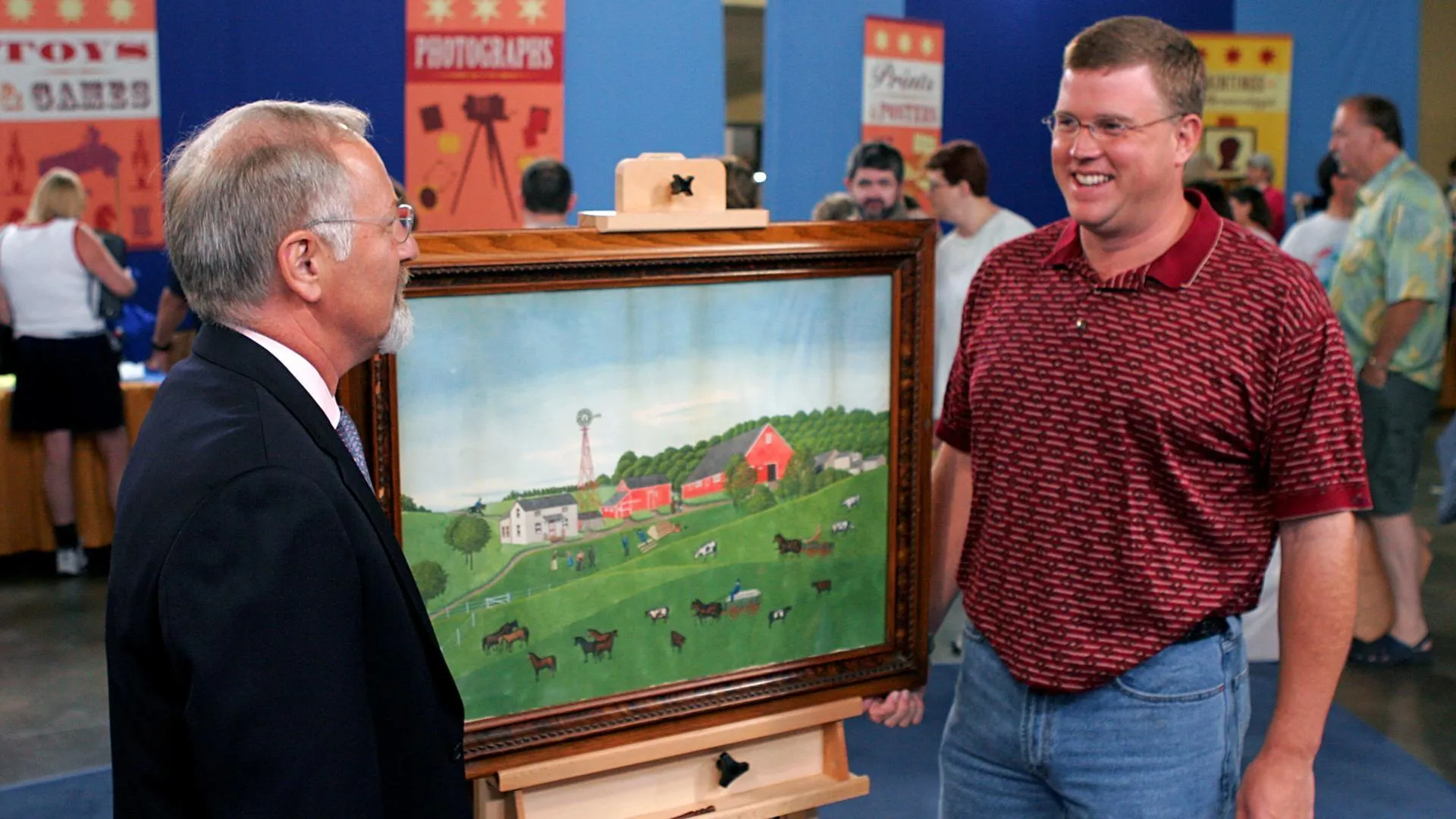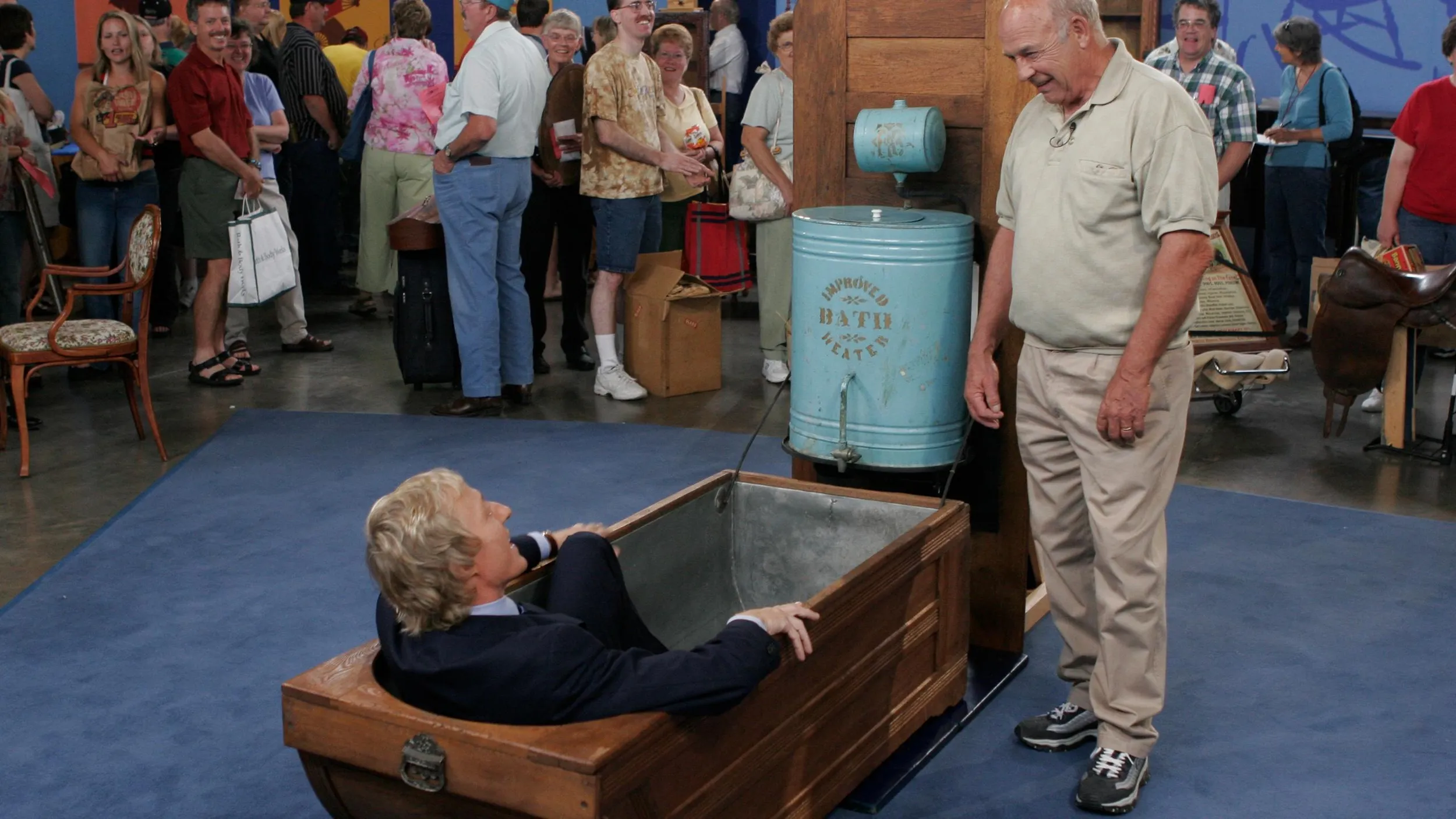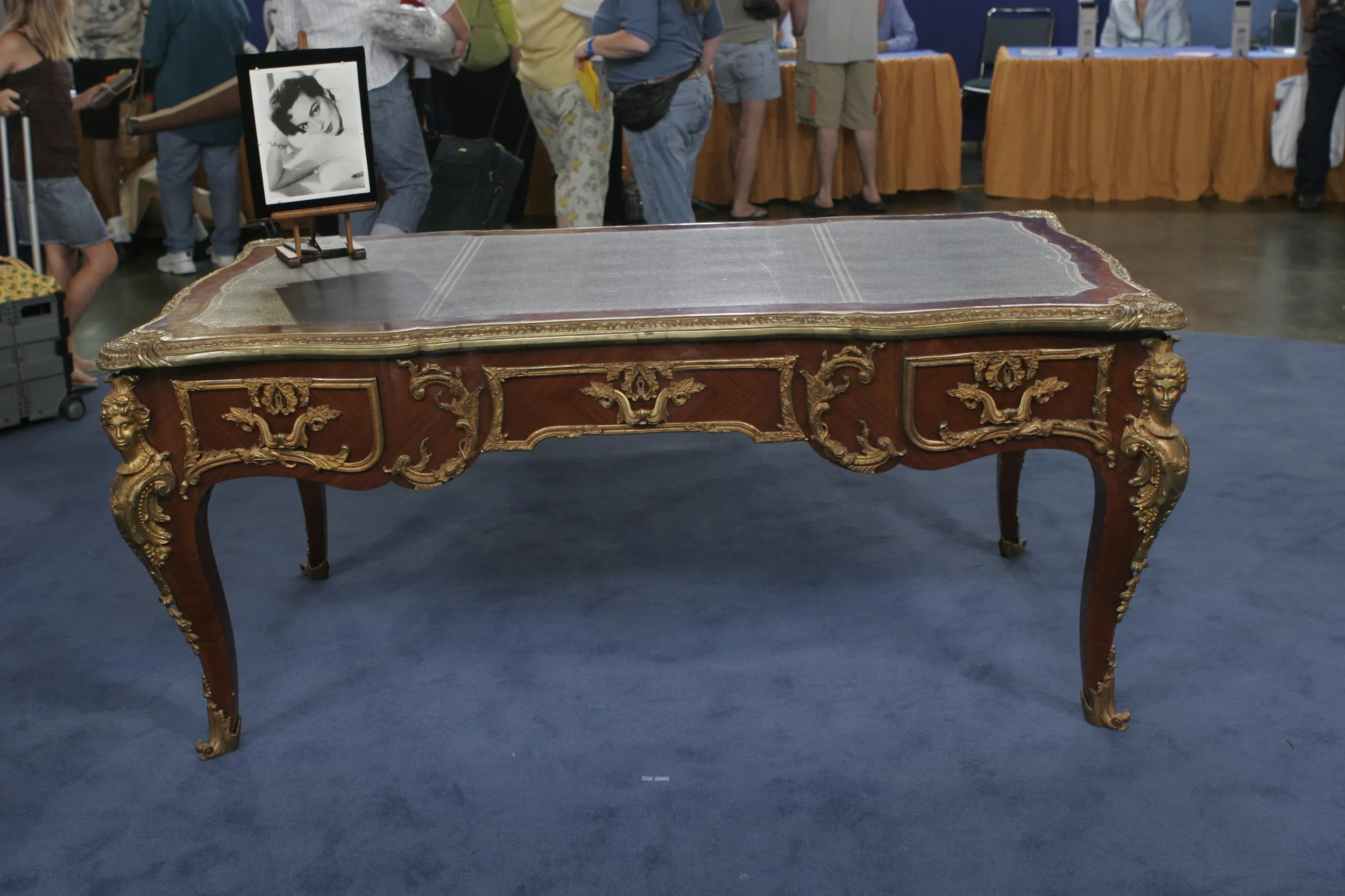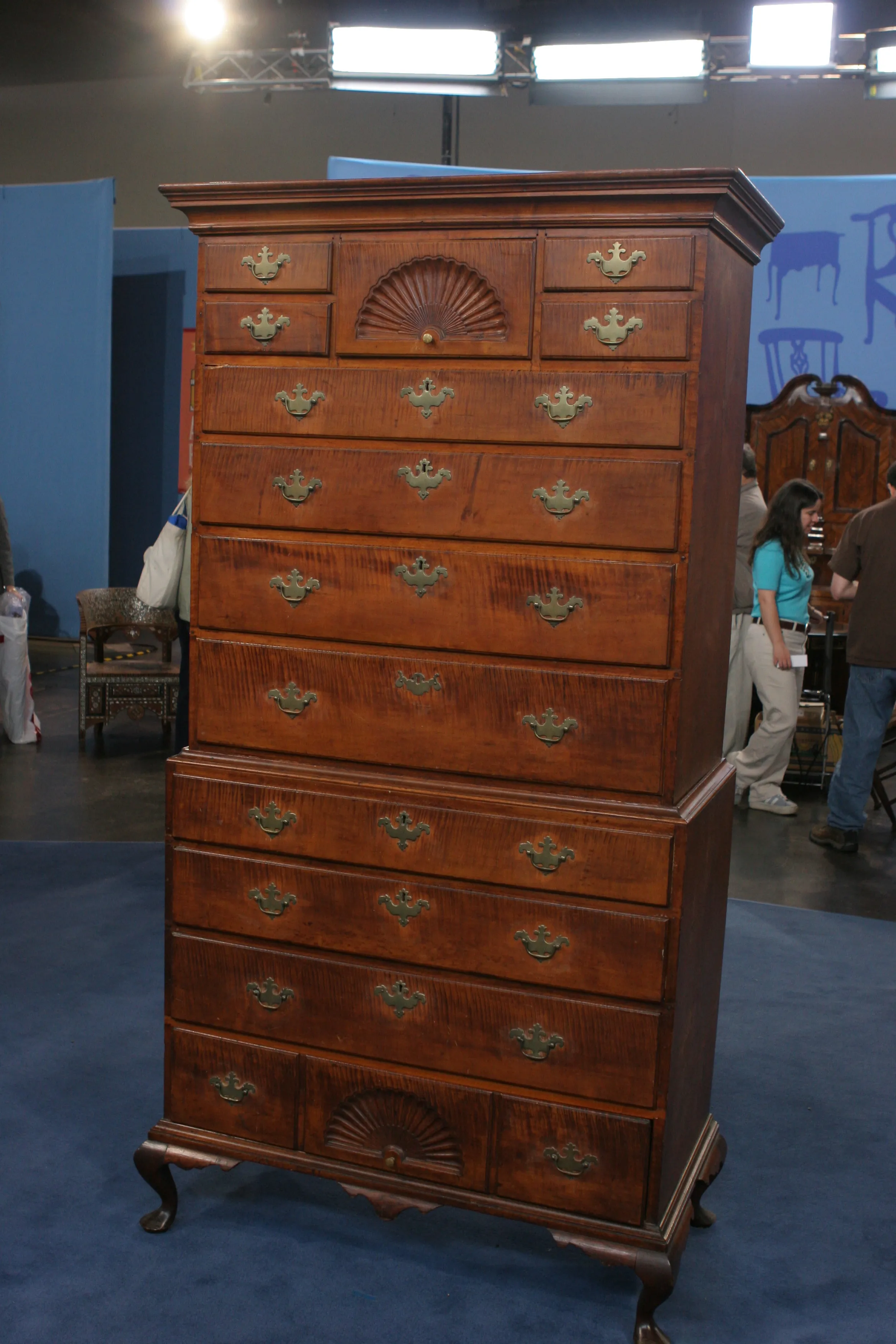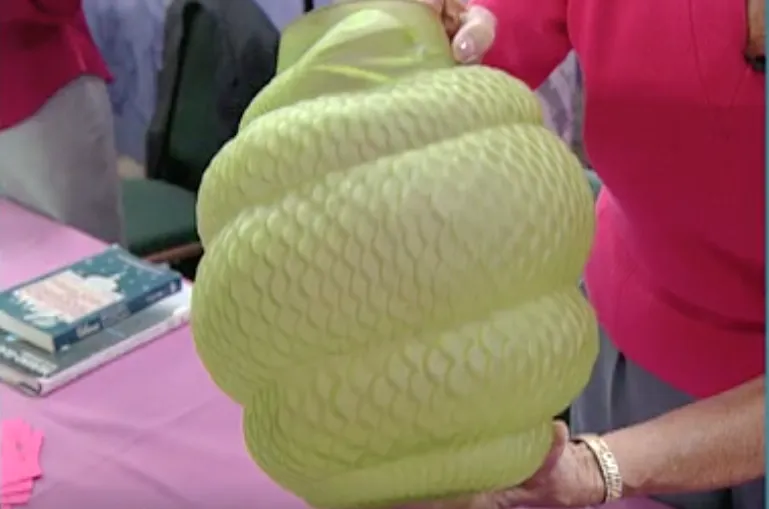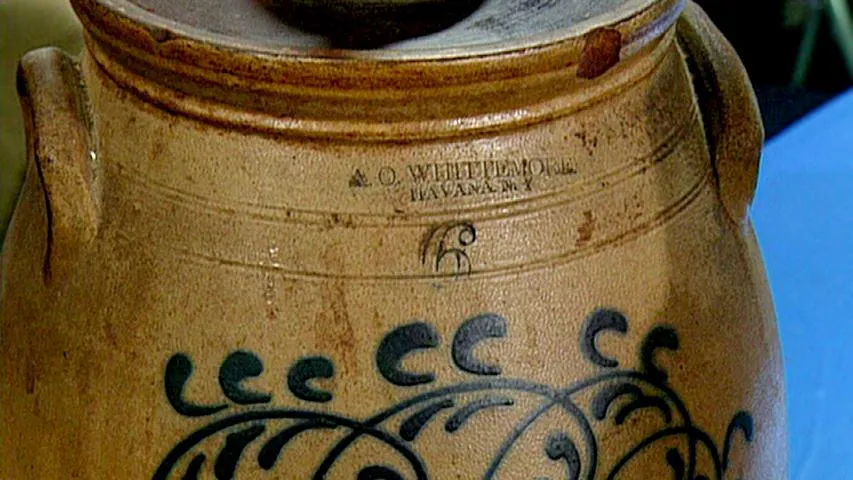APPRAISER: Sometimes the most ordinary boxes possess some pretty extraordinary things.
GUEST: My father owned a construction company for many years. I've had it since the 1940s. It's a scale model of an early Adams leaning-wheel road grader. And the operator would stand back here, and it would be pulled by either horses or mules or tractors, when they came. And my understanding is that this was a salesman's sample. The salesman could carry this around in this case and show this machine for them to use to build roads when this part of the country was first being developed.
APPRAISER: You think of just how hard a salesman had to work in this time, how many miles he had to log. You see how worn the case is. But, also, you focus in after that on how wonderful this machine is. The salesman had to stand up there not with a picture, but with an actual model saying, "This is what it can do. This is how we're going to make your life a lot better." And hopefully, he was successful at it. We see the angled wheels.
GUEST: That slants the rear wheels.
APPRAISER: Uh-huh.
GUEST: And this one slants the front wheels.
APPRAISER: Right.
GUEST: That's for operating on the side of a hill.
APPRAISER: And on the side here, it says, "Adams leaning wheel grader," so it's telling you exactly what it is. At this point, this was an industry, but it was an art form, in the sense that this really, truly takes on a sculptural quality that's better than a lot of things that are done. There's a lot of pride that goes into this. And it was this that made him able to sell these to so many of the towns and create the roads that we see around the Great Plains.
GUEST: Right.
APPRAISER: I would say that probably in a well-publicized auction where there are some other salesman's samples, you'd probably be expecting somewhere between $6,000 and $8,000, so...
GUEST: Wow. I had no idea.

